#stephen skinner
Note
May I genuinely ask you about the history of western occultism? It's far from my comfort zone, and what I'm trying to discern is, from what I can see, grimoiric magic is heavily appropriative of Judaism, there seems to be no way around that. But I've heard the claim that it was originally born from genuine cultural diffusion, and that's why folks justify using it. Is there truth to that? I would love to dig into it if I can do so appropriately & respectfully. Any advice on where I should dig? Again I mean only respect in asking this, and thank you for considering my question.
Oh, anon. You do not know what you have unleashed.
This is gonna be a long one.
First off, 'Western Occultism' covers a large swath of practices and disciplines that range from the Medieval Era, to the Renaissance, as well as the Early Modern Period...so over a thousand years. It's vast umbrella includes astrology, alchemy, hermeticism, angel magic, and over a dozen notable grimiores as well as multiple other lesser ones- and it is not for the faint of heart.
I don't mean that in an elitist way either. I mean that some of this shit gets uncomfy real quick. Multiple grimoires are not shy about animal harm and endangerment. They do not flinch at the ethics of love or sex spells, and they certainly are not strangers to misogyny, racism or ableism. If interacting with any of that sounds distasteful to you, I would gently and lovingly suggest you steer clear.
And if you do choose to move forward? Well then I suggest, especially in the case of grimoires, that you are ready to study your ass off. Once again, I don't say this to be an elitist. I don't say this to show off my starry robe and my pointy wizard hat and my "learned" degree from wizard school. I say this because, otherwise, you will not have context for either the spiritual ideas that are trying to be conveyed in these books or the trap doors that are hidden in their pages.
Some grimoires were not meant for mass consumption or regard. Some books, The Picatrix being one, have recipes for philtres and salves that promise numerous benefits but are actually, literally, poison. Why? Because as a student of the occult you should know that pure bitter almond oil is poisonous, of course. Sometimes whole rituals will be detailed with one deviation that may, from the purview of the writer, cause the whole thing to come crashing down. Why? Because you should know that if Venus and Saturn, two planets whose natures are already at odds, are in contention it will sour the whole production. These writings do not give up their secrets easily. It demands a constant engagement supplemented with a hard won knowledge.
Now, in answer to your question: Did Westen Magic appropriate Judaism, or was it shared cultural proximity?
The answer is- yes. To both.
The history is longer than what I can write in a tumblr post but basically Medieval Christian Magic, Jewish Mysticism, and Islamic Mysticism were all in conversation with one another and were borrowing from eachother during this period of magical and spiritual advancement. Christian Magic did influence Jewish Mysticism, though not as much as Jewish Mysticism influenced Christian Magic; and neither as much as Islamic Mystcism influenced both. This blending of spiritual thinking was actually one of the things that made Spain the once great capital of magical thought and reasoning in the 12th century; due to its diverse Jewish, Muslim and Christian population.
This, along with the fact that there are many symbols, names, and spiritual ideas that Christianity brought into their religion post separation from the larger Jewish tradition, makes it difficult to identify whether certain aspects bled into Western Magic via direct cultural proximity and whether others were outright stolen...well, I mean the Hebrew was. The Hebrew was stolen.
However according to some academic theories, this theft may have even been the catalyst for some of the spiritual concepts later used in Kabbalah; Christian Ritual Magic influenced by Hebrew, in turn influencing Jewish Mysticism.
It must be said however that despite many Christians devotion to Hebrew, it was Jewish people who got stuck with the short end of the stick. Over time Jewish people would see themselves labeled as "demon worshippers" and "evil sorcerers" as their language became synonmus with magic.
This definitely presents a conundrum to modern practicioners. What then do we do with these grimoires? What to do with these traditions? If some of it is appropriative, do we throw it out? If some of it was influenced in moments of genuine human interaction and curiosity, do we label it 'permissible' despite the terrible anti-jewish sentiment on the rise in our modern era?
Both are valid questions, but no I personally don't condone their compelete disavowment; like many other traditons, Western Magic should be considered as a whole and with its complex history in mind. I think one should consider that these grimoires were far reaching and culturally influential, and in ways we cannot even begin to understand, or even untangle. A grimoire could be found in Ireland just as easily as in Spain, and not just in the libraries of white bearded men- which only makes sense. Some of what is in the grimoires came from the common people, and to the common people pieces of these books returned.
In terms of Western Magic, I think the magic community would have an easier time creating room for discussion, education and further collaboration. Such an approach would further these traditons in ways that we haven't seen for hundreds of years, and in ways not possible from the beginning. In fact, such groups already exist that contain both Jewish, Christian and Non-Christian practicioners.
With (all) of that being said-
There are ways to get around the parts you feel unsure about, or are approiative. For instance, in the case of most Hebrew, one could swap it out for Enochian since both are "heavenly" and "spiritual" languages. Such substitutions require knowledge of what you're working with and a willingness to experiment but they are possible. In fact, substitutions are necessary as it's not like you can just go buy the musk of a civet cat when you need it.
Personally, I feel the best books to start with are Agrripa's Occult Philosophy, Books 1-3 and 4. It is said that to read all four is akin to achieving a college level degree in Renaissance Magic. Any of the Grimoires in which Stephen Skinner is listed as an editor and collaborater are also great as they are usually more digestable.
As for history-
Dr. Justin Sledge's YouTube channel Esoterica is a great resource for all things Ancient and Medieval Magic Related.
Grimoires: A History of Magic Books by Owen Davis.
Ancient Jewish Magic: A History by Gideon Bohak.
And @woodland-goes, a practcioner of Western Magic and Grimoire Work also suggested I share this link. He has a podcast coming out very soon that will also be discussing what we've covered today and I wholly suggest you go and hit up his inbox if you have any more questions on the topic. He is far more knowledgeable than I.
Hope this helped anon.
#phew#this took some time and deep consideration#folk magic#spirituality#magic practitioners#western magic#western occultism#grimoire work#grimoires#agrippa#stephen skinner#occultism#ritual magic#magic history
113 notes
·
View notes
Text
The Search for Abraxas

“The Search for Abraxas” has recently fallen into my hands!
Published in 1972, it was Nevill Drury’s and Stephen Skinner’s first book. Naturally, like other occult books of the era, it comes with the obligatory introduction by Colin Wilson. Like many of Drury’s later books, it’s basically a guide to occultism for the beginner and covers pretty much of the same material, including the Tarot, Qabalah, Shamanism, Austin Osman Spare (who’s artwork graces both the cover and the inside), Surrealism, and astral projection.
I might post some reflections on the book in a follow-up post.
#Abraxas#Abrasax#nevil drury#Stephen Skinner#Nevill Drury#colin wilson#Occult#Occultism#occult books#bookshelf#austin osman spare#esotericism#western esotericism
16 notes
·
View notes
Text
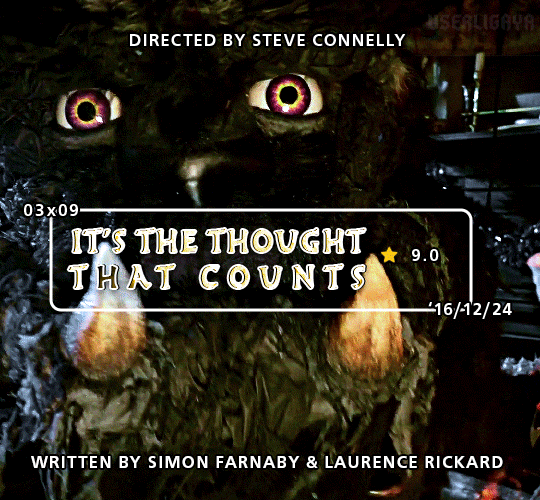
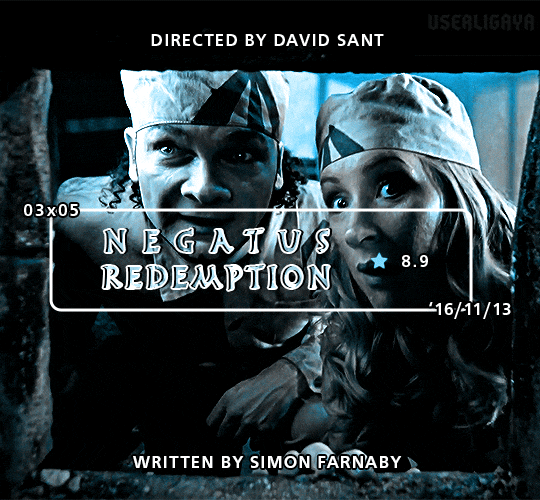


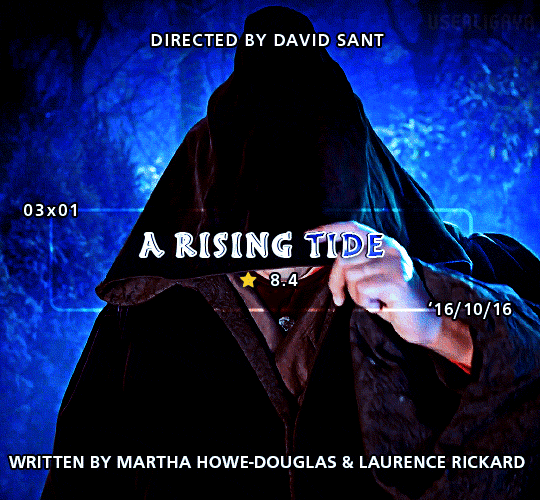




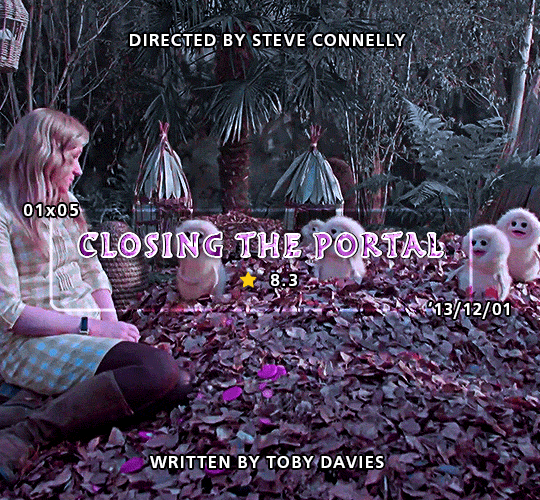
IMDB'S TOP 10 RATED EPISODES OF YONDERLAND (2013-2016)
#yonderland#yonderlandedit#six idiots#them there#martha howe-douglas#simon farnaby#larry rickard#mathew baynton#jim howick#ben willbond#stephen fry#dan renton skinner#tw flashing#dakotasvibe#userligaya#i will make a set like this for ghosts too. and i will cry when i do it
129 notes
·
View notes
Text
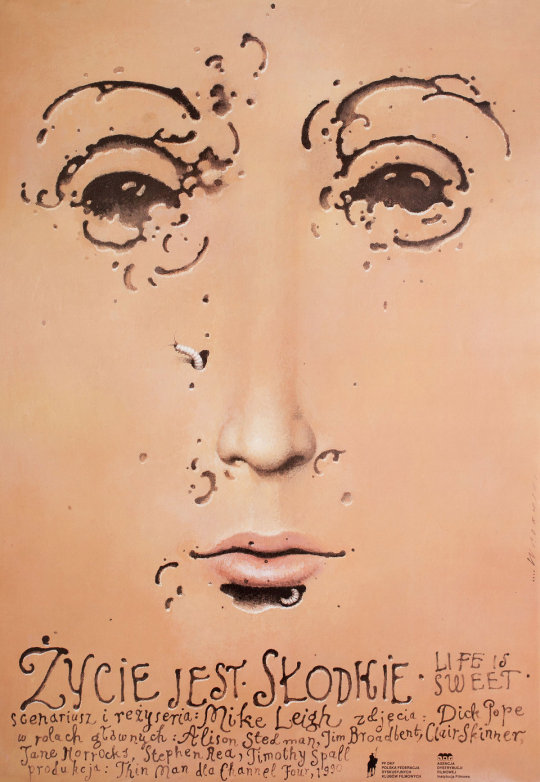
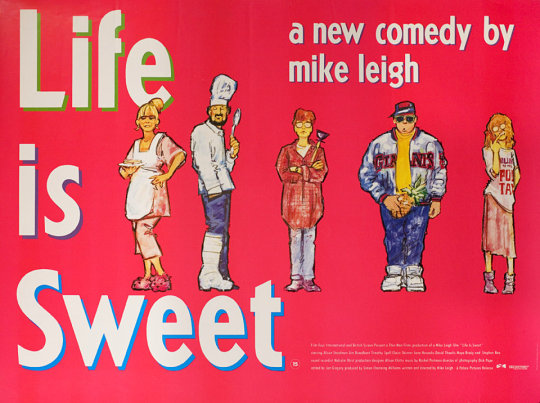
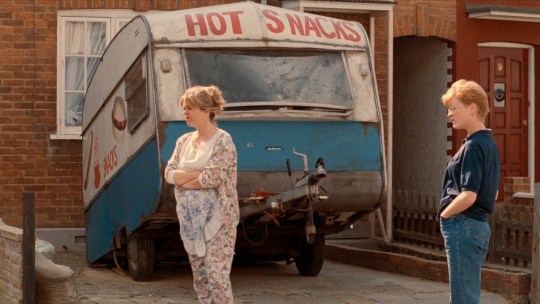
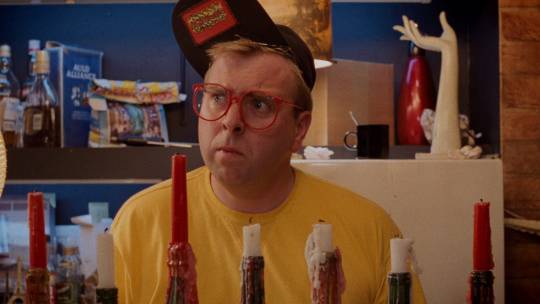
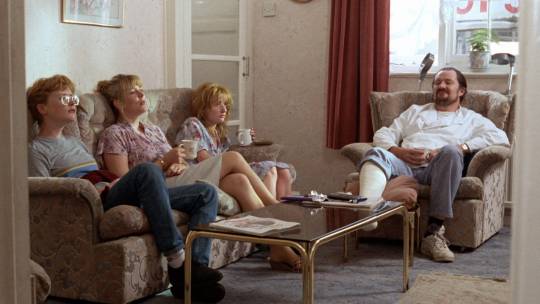
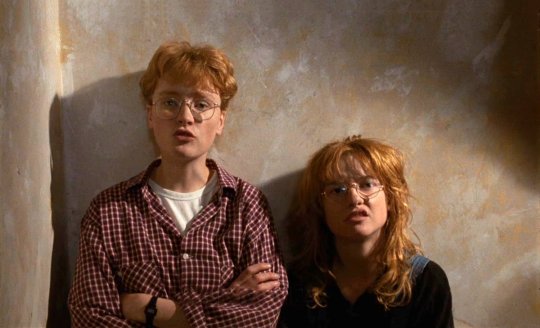
Life Is Sweet (1990) Mike Leigh
December 3rd 2023
#life is sweet#1990#mike leigh#alison steadman#jim broadbent#jane horrocks#claire skinner#timothy spall#stephen rea#moya brady#david thewlis
4 notes
·
View notes
Text

2 notes
·
View notes
Text
B.F. Skinner look like one of Stephen King's monsters
0 notes
Text
Nostradamus - Les prophéties réalisées et les prédictions pour la fin du millénaire – Francis KING – Stephen SKINNER
Nostradamus – Les prophéties réalisées et les prédictions pour la fin du millénaire – Francis KING – Stephen SKINNER
Auteur(s) : Francis King – Stephen Skinner
Editeur : France-Loisirs Paris
Format : Beau livre
Langue : Français
Ouvrage traduit de l’anglais par Hubert Tézenas.
Nombre de pages : 176
Dimensions : In-4 carré (285 X 230mm)
Parution : 01/01/1994
Résumé.
Un passionnant…

View On WordPress
#lecture et santé#lire#littérature#Nostradamus - Les prophéties réalisées et les prédictions pour la fin du millénaire – Francis KING – Stephen SKINNER#nouvelles#reflechir#romans
0 notes
Text
Skinned Alive
Been a minute since I dug into one of these Sierra Foothills stunners. As I have raved before, these are some clean, amazing, nearly-perfect wines from El Dorado–a region which is my FAVORITE of all the Sierra range. Pale transparency in the glass–absolutely clear even at depth–showing a golden glow to the rosy core. Bottled in flint–a bold move with any red–but zero sediment or haze anywhere.…

View On WordPress
#California Wine#el dorado AVA#El Dorado County Wines#Eldorado County#Native Red#Natural wine#red belnd#restingsommface#Sierra Foothills#Sierra Foothills wineries#Sierra Wineries#Skinner Vineyards#Skinner wine#Soif Wine Blog#Stephen McConnell Wine Blog#Steve McConnell Wine Blog#wine1percent#Winelover
1 note
·
View note
Text
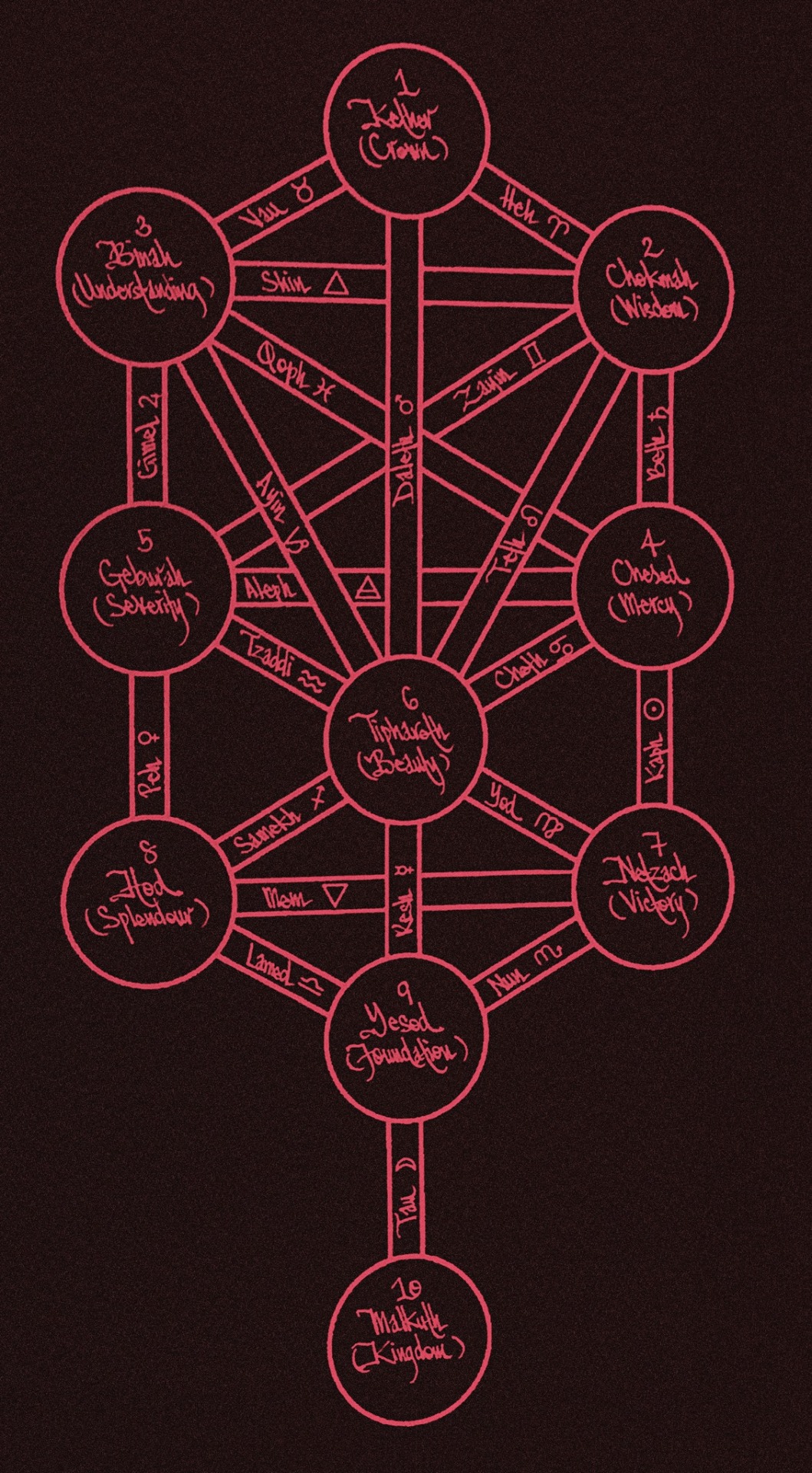
“The Lurianic Tree of Life” - based on the Sefer Yetzirah (“Book of Formation”), one of the earliest texts of Jewish mysticism (2nd century BCE to 2nd century CE).
Compared to the version of the Tree which appears in many Western esoteric texts, there is only one path between Malkuth (Earth) and Yesod (Moon). There are also diagonal paths between Binah and Chesed and Chokmah and Geburah, which do not appear in the Western Tree.
This also means that the assignment of the 22 letters of the Hebrew alphabet to the 22 paths differs between the two versions.
The three Mother letters (Shin/Fire, Aleph/Air and Mem/Water) are assigned to the horizontal paths, which allow movement between the different pillars of the Tree.
The seven Double letters (attributed to the seven classical planets) are assigned to the vertical paths.
The twelve Single letters (attributed to the twelve signs of the Zodiac) are assigned to the diagonal paths.
Image source: “The Complete Magician’s Tables” by Stephen Skinner (2006)
83 notes
·
View notes
Text
britcom comedians & panel show personalities who share your sign
AQUARIUS ♒ dara ó briain • frank skinner • glenn moore • guz khan • hugh dennis • lucy porter • maisie adam • mark watson • phil wang • vic reeves
PISCES ♓ aisling bea • alan davies • dave gorman • ed gamble • jenny eclair • katy wix • michael mcintyre • rose matafeo
ARIES ♈ andy parsons • desiree burch • ed byrne • gary delaney • jamali maddix • john kearns • josh widdicombe • josie long • roisin conaty • romesh ranganathan • rory bremner
TAURUS ♉ al murray • alex brooker • catherine tate • greg davies • joe wilkinson • john robins • mae martin • milton jones • morgana robinson • rhys james • rob brydon • sally phillips • sandi toksvig • sean lock • stephen mangan
GEMINI ♊ alan carr • bob mortimer • david baddiel • fern brady • judi love • julian clary • london hughes • mel giedroyc • noel fielding • paul sinha • rich hall • richard ayoade • sara pascoe • sarah millican • shappi khorsandi • sindhu vee • tom allen
CANCER ♋ adam hills • alice levine • david mitchell • katherine ryan • harriet kemsley • ian hislop • jack whitehall • joe lycett • paul merton • peter serafinowicz • phill jupitus • rosie jones
LEO ♌ bridget christie • cariad lloyd • chris ramsey • daisy may cooper • frankie boyle • isy suttie • lee mack • jo brand • nish kumar • victoria coren mitchell
VIRGO ♍ alex horne • dane baptiste • darren harriott • ivo graham • jimmy carr • johnny vegas • lolly adefope • miles jupp • nina conti • stephen fry • sue perkins • tim key
LIBRA ♎ diane morgan • harry hill • jack dee • jon richardson • limmy • nick helm • rhod gilbert • robert webb • tiff stevenson • zoe lyons
SCORPIO ♏ angela barnes • chris addison • elis james • ellie taylor • holly walsh • liza tarbuck • jonathan ross • kerry godliman • kevin bridges • matt forde • mike wozniak • sofie hagen • susan calman
SAGITTARIUS ♐ adam riches • david o'doherty • jessica knappett • larry dean • miranda hart • richard osman • seann walsh • simon amstell • steven k. amos
CAPRICORN ♑ ahir shah • angus deayton • bill bailey • claudia winkleman • james acaster • mark lamarr • paul foot • rob beckett • suzi ruffell
#REPOSTING CUZ I ACCIDENTALLY DELETED IT HAHA#sorry i can't include every person ever but i tried to at least do everyone's faves!#a good day to be a gemini!!!#signs
123 notes
·
View notes
Text

“The Lurianic Tree of Life” - based on the Sefer Yetzirah (“Book of Formation”), one of the earliest texts of Jewish mysticism (2nd century BCE to 2nd century CE).
Compared to the version of the Tree which appears in many Western esoteric texts, there is only one path between Malkuth (Earth) and Yesod (Moon). There are also diagonal paths between Binah and Chesed and Chokmah and Geburah, which do not appear in the Western Tree.
This also means that the assignment of the 22 letters of the Hebrew alphabet to the 22 paths differs between the two versions.
The three Mother letters (Shin/Fire, Aleph/Air and Mem/Water) are assigned to the horizontal paths, which allow movement between the different pillars of the Tree.
The seven Double letters (attributed to the seven classical planets) are assigned to the vertical paths.
The twelve Single letters (attributed to the twelve signs of the Zodiac) are assigned to the diagonal paths.
Image source: “The Complete Magician’s Tables” by Stephen Skinner (2006)
23 notes
·
View notes
Text
Guide to Hungarian Names
So I’m getting a little fed up with the fact that whenever there is a Hungarian character in English speaking media, their surname is Kovács, and if it’s a male character, the given name is László (maybe spelled Lazlo). So here’s a quick guide/sampler of Hungarian names
Ground rules:
In contrast to much of the world, in the case of Hungarian names, surnames come first, then given names. But when talking in English, we’ll most likely just automatically flip them
Surnames sometimes might have a spelling that goes against regular spelling rules (e.g. “német,” which is the Hungarian word for German, might be spelled as Németh as a surname)
Some surnames might exist in two versions, one ending in -i, the other in -y. In this case, the latter means that the person is from a (once) aristocratic family
Up until like the late 1980’s, women, when marrying, legally had to take on their husband’s name with the suffix -né (“wife of”). So, for example, a woman marrying a guy named Kovács János would be legally called Kovács Jánosné after marriage (given name practically erased). Now there are several options. Let’s say our hypothetical woman marrying Kovács János is called Nagy Ilona. After marriage, she might 1, keep her maiden name 2, called Kovács Ilona (take on the husband’s surname) 3, Kovács-Nagy Ilona (hyphenate) 4, Kovácsné Nagy Ilona (husband’s surname with -né suffix, maiden name), Kovács Jánosné (husband’s name with -né suffix)
Nickname forms are… varied, but generally: fist syllable (if vowel is long, it’s shortened) + consonant of the second syllable + i. So like: János –> Jani, Katalin –> Kati, István –> Isti
Male names:
András (Andrew)
Máté (Matthew)
Álmos (“one with a dream”, name from a myth)
Keve (old Hungarian)
János (John)
István (Stephen)
Mátyás (Matthew)
Bálint (comes from Valentin)
Balázs (from the Latin surname Blasio)
Levente (old Hungarian)
Zalán (old Hungarian)
Botond (old Hungarian)
Tamás (Thomas)
Benedek (Benedict)
Hunor (old Hungarian)
Gergő/Gergely (Gregory)
Zoltán (old Hungarian)
Attila (old Hungarian)
Ákos (old Hungarian)
Gábor (Gabriel)
Sándor (Alexander)
Zsolt (old Hungarian)
Csongor (old Hungarian)
Ferenc (Francis)
Csaba (old Hungarian)
Mihály (Michael)
Boldizsár (old Hungarian)
Szabolcs (old Hungarian)
Tibor (Hungarian, origin is a bit ???)
Miklós (Nicholas)
Imre (old Hungarian)
Girls’ names are more likely to sound familiar to the Anglo-Saxon ear, but still, here are some examples:
Zsófia (Sophia)
Erzsébet (Elizabeth)
Boglárka (Hungarian, literally “buttercup”)
Ildikó (Hungarian)
Ilona (Helena)
Emese (old Hungarian, from a myth)
Gréta (derived from Margaret)
Fruzsina (from Greek Euphrosyne)
Csenge (old Hungarian)
Borbála (derived from Barbara)
Hanga (Heather)
Hajnalka (little dawn)
Gyöngyi (pearl-like)
Orsolya (Ursula)
Dorka (derived from Dora)
Noémi (Naomi)
Panna (derived from Anna)
Kinga (derived from German Kunigunda)
Zita (old Hungarian)
Hedvig
Dorottya (derived from Dora)
Dalma (Hungarian, coined in the 19th century)
Tímea (Hungarian, coined in the 19th century)
Some common surnames:
Kovács (Smith)
Nagy (“Big”)
Kiss (“Little”)
Szűcs (Skinner)
Takács, might also be spelled Takáts (Weaver)
Szabó (Tailor)
Tóth (Slovak)
Horváth/Horvát (Croatian)
Németh/Német (German)
Varga (Cobbler)
Molnár (Miller)
Farkas (Wolf)
Lakatos (Lockmaker)
Juhász (Shepherd)
Pap/Papp (Priest)
Fekete (Black)
Fazekas (Potter)
Király (King)
Katona (Soldier)
Magyar (Hungarian)
16 notes
·
View notes
Text
250 Hollywood Celebrities Sign Letter Demanding Big Tech Censor Anyone Who Opposes Trans Surgeries On Kids
Here are the names of every celebrity who wants to mutilate children. Remember them & for Gods sake, stop supporting their products, movies, shows etc.
Abby Wambach
Adam Eli
Aitch Alberto
AJ Shively
Alan Cumming
Alejandra Caraballo
Alejandra Ghersi
Alex Clark
Alexandra Gutierrez
Alisa Ramirez
Allie Leonard
Allison Goldfrapp
ALOK Vaid-Menon
Alyssa May Gold
Alyssa Milano
Amber Ruffin
Amber Tamblyn
Amy Schumer
Amy Landecker
Andrew Polk
Angelica Ross
Annaleigh Ashford
Antoni Porowski
Aparna Brielle
Arden Myrin
Ariana Grande
Arisce Wanzer
Avan Jogia
Barbie Ferreira
Bebe Rexha
Bella Ramsey
Ben Barnes
Benito Skinner
Benj Pasek
Bethany Cosentino
Bethany Leavel
Billy Eichner
Billy Porter
Bob the Drag Queen
Bobby Berk
Bonnie Milligan
Brad Oscar
Bradley Whitford
Brandon Matthews
Brendan Hines
Bretman Rock
Brian Smith
Brigette Lundy-Paine
Brittany Tomlinson
Busy Philipps
Caesar Samoya
Camila Cabello
Camille A Brown
Cara Delevingne
Chani Nicholas
Chella Man
Chelsea Handler
Cheyenne Jackson
Chris Perfetti
Christa Miller
Cleo Wade
Colton Haynes
Corey Jantzen
Cynthia Erivo
Cynthia McWilliams
Cynthia Nixon
Cyrus Veyssi
D’Arcy Carden
Dakota Fanning
Dan Levy
Darren Criss
David Shatraw
David Oulton
Debra Messing
Deepica Mutyala
Demi Lovato
Des McAnuff
Devery Jacobs
Diana Maria Riva
Diane Guerrero
Dylan Mulvaney
Ed Droste
Eddie Ndopu
EJ Marcus
Elegance Bratton
Eliot Rahal
Elle Fanning
Elliot Page
Emily Hampshire
Emily V. Gordon
Emma Hunton
Erin Reed
Estefania Pessoa
FLETCHER
Freddy Thomas
Gabrielle Union-Wade
Gigi Gorgeous
Glennon Doyle
Gottmik
Grace Kuhlenschmidt
Griffin Dunne
Haley Baldwin Bieber
Hannah Gadsby
Harry Lambert
Hayley Kiyoko
Hilary Montez
Ilana Glazer
Indya Moore
Isaac Mizrahi
Jackie Bazan
Jacob Tierney
Jai Rodriguez
Jameela Jamil
James Blake
James Scully
Jaymes Vaughan
Jamie Lee Curtis
Janaya Khan
Janelle Monáe
Janet Hubert
Jazz Jennings
Jenna Lyons
Jennifer Kerr
Jeremy Fall
Jessica Betts
Jillian Mercado
Jinkx Monsoon
Joe DiPietro
Jonathan Van Ness
Jonathan Bennett
Jonny Pierce
Jordan Stenmark
Jordan Firstman
Jordan Roth
JP Saxe
Judd Apatow
Justin Baldoni
Justin Tranter
Kal Penn
Kamar de los Reyes
Karamo Brown
Kate Reinders
Katherine LaNasa
Kathryn Grody
Kellie Overbey
Kelly Devine
Kendrick Sampson
Kevin Harrington
Kevin Cahoon
Ki Griffin
Kimber Elayne Sprawl
Kimberly Drew
Kristin Chenoweth
Lachlan Watson
Laith De La Cruz
Laura Terruso
Lauren Jauregui
Laverne Cox
Lena Dunham
Lena Waithe
Lena Hall
Lilly Singh
Lily Rabe
Liv Hewson
Liza Koshy
Lola Tung
Lorin Latarro
Lovell Adams-Gray
Lucky Bromhead
Mae Martin
Mae Whitman
Maggie Boccella
Maitreyi Ramakrishnan
Mandy Patinkin
Marc Jacobs
Marc Kudisch
Marieme Diop
Martha Plimpton
Matt Bernstein
Matt McGorry
Matt Walton
Medalion Rahimi
Meena Harris
Megan Crabbe
Michael D. Cohen
Michaela Jaé Rodriguez
Michelle Buteau
Midori Francis
Miriam Silverman
Moj Mahdara
Mona Chalabi
Montego Glover
Munroe Bergdorf
Nate Wonder
Nats Getty
Neila Karassik
Nicholas Ferroni
Nico Carney
Nico Santos
Nico Tortorella
Nicole Maines
Niecy Nash-Betts
Nik Dodani
Ocean Vuong
Olly Alexander
Our Lady J
Padma Lakshmi
Patrick Stewart
Patti LuPone
Peppermint
Phillip Picardi
Phoebe Robinson
Poorna Jagannathan
Rachel Cargle
Rafael Silva
Ramy Youssef
Randy Shulman
Raquel Willis
Richa Moorjani
Rob Holysz
Robert Horn
Rory Dahl
Rosario Dawson
Rupi Kaur
Sam Smith
Sander Jennings
Sandy Rustin
Sara Bareilles
Sara Ramirez
Sarah Ramos
Sasha Velour
Scott Turner Schofield
Shawn Mendes
Shea Couleé
Shea Diamond
Sherri Saum
Sinead Burke
Solomon Hughes
Stephen Kunken
Susie Park
T. Oliver Reid
Taika Waititi
Tan France
Tatiana Maslany
Tess Holliday
Tiffany Namtu
Tommy Dorfman
Tracee Ellis Ross
Travis Alabanza
Tunde Adebimpe
Vivek Shraya
Wanda Sykes
Warren Carlyle
Wayne Cilento
Wilson Cruz
Yves Mathieu East
Zoë Chao
Zooey Deschanel
SHARE THIS WITH EVERY🤬NE‼️💯
40 notes
·
View notes
Photo



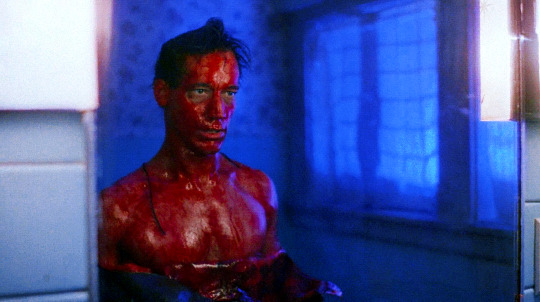





Ratman's Notebooks, 1968 (Stephen Gilbert) / The Blood, 1958 (Ned O'Gorman) / Freshwater, 2018 (Akwaeke Emezi) / The Knife, 2004 (Jean Valentine) / The Mask Now, 2016 (Jorie Graham) / Splatter, 2020 (Linnea Paskow) / Knife in a Glass, 1963 (Richard Diebenkorn) / Jack the Knife, 2005 (Freakwater) / The Death of Vivek Oji, 2020 (Akwaeke Emezi) / Skinner, 1993 (Iván Nagy)
#quote#art#skinner 1993#ted raimi#dennis skinner#web weaving#aes. 'a malady of divine defilement' 🔪 skinner
53 notes
·
View notes
Text

This is one of the best times of the year to grab books from Llewellyn. They have a 50% off sale going on until 1/1/24.
Link: Llewellyn Books
In addition to Mat Auryn and Jason Miller's books that are always quick to make the list, I wanted put some more book recommendations on your radar. In no particular order:
* Llewellyn's Complete Book of Ceremonial Magick - This is an amazing primer for anyone interested in ceremonial magick. It includes author contributions from David Shoemaker, Stephen Skinner, Chic & Sandra Cicero, John Michael Greer, Brandy Williams, and others. @dshoemaker93
* Modern Magick by Donald Michael Kraig - This is a classic for any magical practitioner's library.
* A Year of Pagan Prayer by Barbara Nolan - This is a fantastic resource for yearly practice and writing your own rituals and rites.
* The Magick of Food by Gwion Raven - A great read for any magician or practitioner who loves food and is looking to get the most out of their magical meals.
* Low Magick by Lon Milo DuQuette - I want everyone to read this. Lon is most known for his work in ceremonial "high" magick, but this is beautiful and accessible exploration of magical methods and tools for practical use.
* The Witch's Path by Thorn Mooney - This one is a great read for anyone who has struggled with magical burn out. Despite it being witch focused, I regularly recommend this to ceremonial magick people because the advice and tools are just as helpful for us too.
* Seal, Sigil, & Call by Jim Mascaro - This is its own thing and his own system of magick that he developed. If you would like to read something very fresh and approach your current work with new eyes, then this is for you.
#magick#wtichcraft#ceremonial magic#witchblr#pagan#paganism#occultism#occult books#occult#ritual#witch
15 notes
·
View notes
Text
Glad's Book List
I wrote a post recently about my history (normally I'd link it but I don't want to be narcissistic), and realized that I've read a fair few occult books over the years. So here's the list; I'll keep updating it as I find more books in my various libraries and book stashes.
Quick note before getting into this list--not everything I've read will make it. Just the stuff I read and recommend others parse through. For example, I have intentionally omitted my studies in Kabbalah to discourage others from unintentionally appropriating.
But by "parse through", I truly mean that. My path has meandered through several schools of thought and wandered into appropriative territory at times (I constantly strive to correct any appropriation in my practice that gets brought to my attention). Maybe about 20% of each book makes it into my current path.
Eh, so it wasn't so quick of a note. Here's the list:
CEREMONIAL MAGIC
Aleister Crowley, Book 4
Chic and Sandra Cicero, Essential Golden Dawn
Donald Kraig, Modern Magick
Henry Agrippa, Three Books of Occult Philosophy
Israel Regardie, The Golden Dawn
Lon Milo DuQuette, Llewellyn's Complete Book of Ceremonial Magick
Samuel Mathers, The Book of Abramelin
Stephen Skinner and David Rankine, Key of Solomon
CHAOS MAGIC
Archtraitor Bluefluke, The Psychonaut Field Manual
Jan Fries, Visual Magick
Lon Milo DuQuette, Low Magick
Peter Carroll, Liber Null & Psychonaut; Liber Kaos
Phil Hine, Condensed Chaos; Prime Chaos
Richard Metzger, Book of Lies
Robert Wilson, Prometheus Rising
CRYSTALS
Cassandra Eason, The Complete Crystal Handbook
Karen Frazier, An Introduction to Crystal Grids
Robert Simmons and Naisha Ahsian, The Book of Stones
Scott Cunningham, Encyclopedia of Crystal, Gem, and Metal Magic
Yulia van Doren, Crystals
DIVINATION
A.E. Waite, Pictorial Key to the Tarot
Brigit Esselmont, Everyday Tarot; The Ultimate Guide to Tarot Meanings
Chic and Sandra Cicero, Golden Dawn Ritual Tarot
Diana Paxson, Taking Up the Runes
Lon Milo DuQuette, Understanding Crowley's Thoth Tarot
Melissa Cynova, Kitchen Table Tarot
Rachel Pollack, Seventy-Eight Degrees of Wisdom
DREAMS
Carl Jung, Dreams; The Red Book
DRUIDRY
Dana O'Driscoll, Sacred Actions
John Greer, The Druidry Handbook; The Druid Magic Handbook
Philip Carr-Gomm, The Druid Way
Ross Nichols, The Book of Druidry
HELLENISM
David Mierzwicki, Hellenismos
Hesiod, Theogeny
Homer, Iliad; Odyssey
John Opsopaus, The Oracles of Apollo
LABRYS Community, Hellenic Polytheism
Orpheus, The Orphic Hymns
HERBS
Nicholas Culpeper, Culpeper's Complete Herbal
Scott Cunningham, Encyclopedia of Magical Herbs
HERMETICISM
Hermes Trismegistus, Corpus Hermeticum; The Emerald Tablet
Three Initiates, The Kybalion
GENERAL MAGIC
Aleister Crowley, Magic in Theory and Practice
Christopher Dell, The Occult, Witchcraft and Magic
Manly Hall, Secret Teachings of All Ages
Owen Davies, Oxford Illustrated History of Witchcraft and Magic
Rock Point Publishing, Spellcraft
Sarah Lyons, How to Study Magic
MEDITATION
Diana Paxson, Trance Portation
Stephen Bodian, Meditation for Dummies
PAGANISM
Herman Slater, A Book of Pagan Rituals
Margot Adler, Drawing Down the Moon
Ronald Hutton, Triumph of the Moon
WICCA
Doreen Valiente, Witchcraft for Tomorrow
Gerald Gardner, The Meaning of Witchcraft; Witchcraft Today
Janet and Stewart Farrar, A Witches' Bible
Raymond Buckland, Buckland's Complete Book of Witchcraft; The Tree; Wicca for One
Scott Cunningham, Wicca; Living Wicca
Starhawk, The Spiral Dance
Thea Sabin, Wicca for Beginners
Thorn Mooney, Traditional Wicca
9 notes
·
View notes